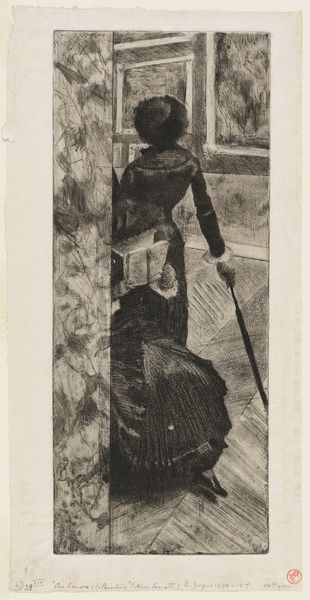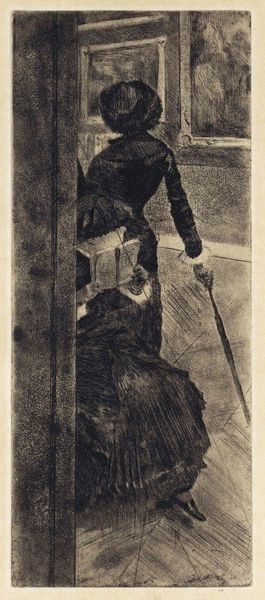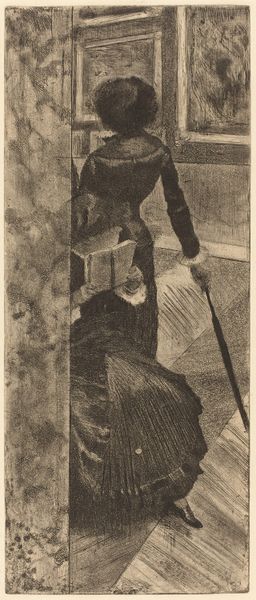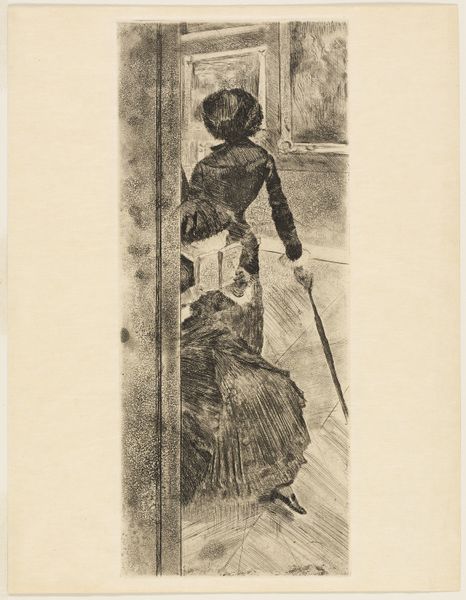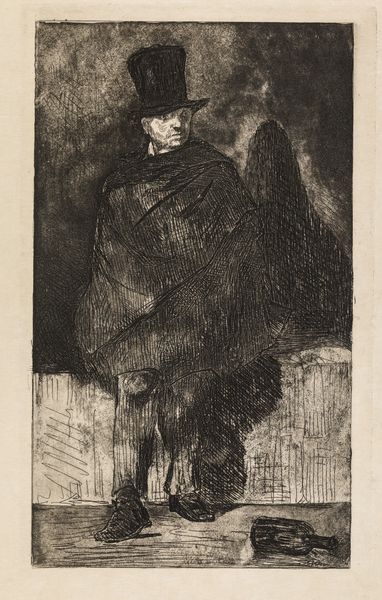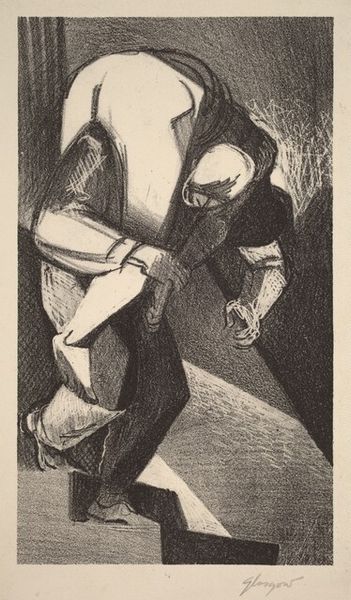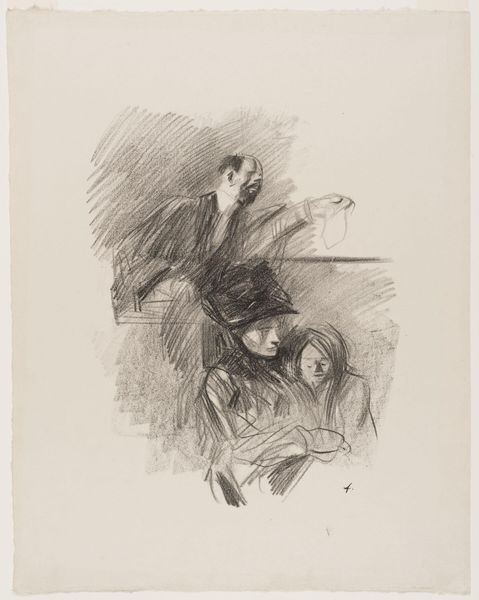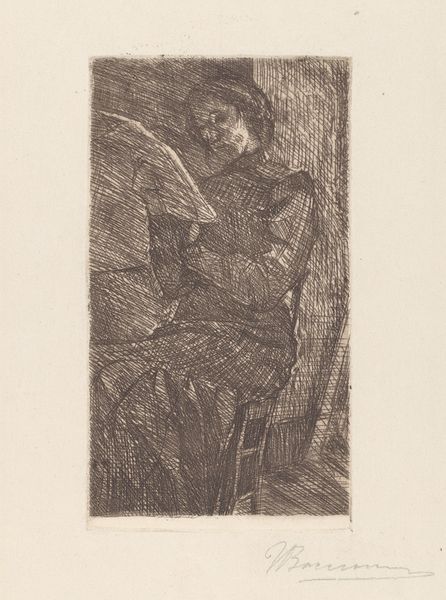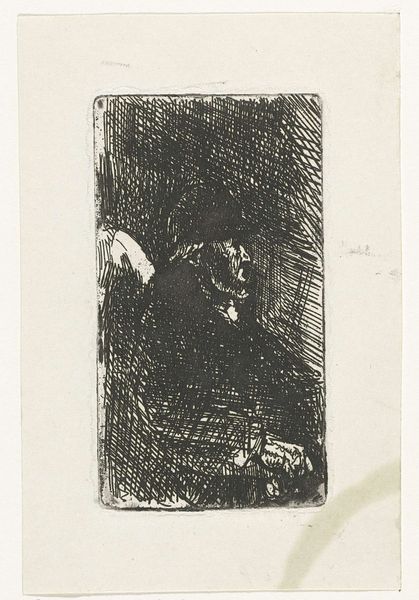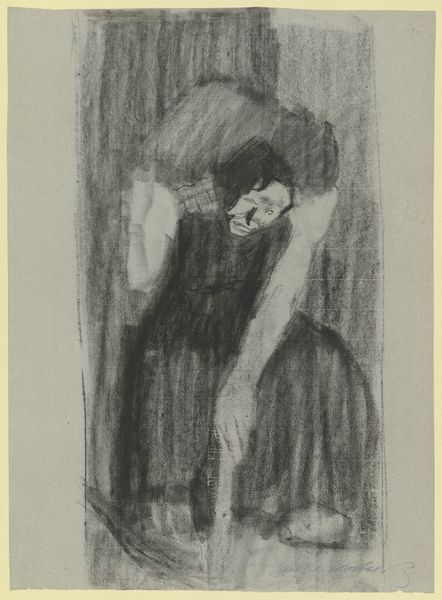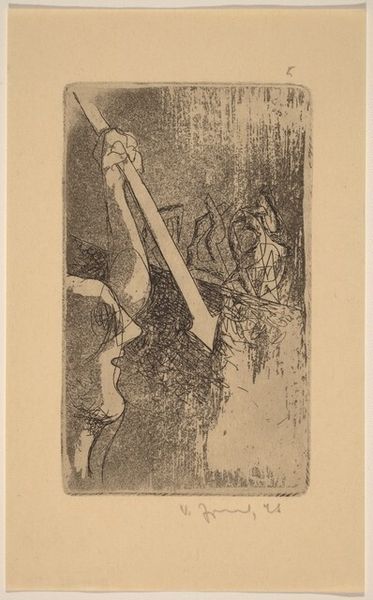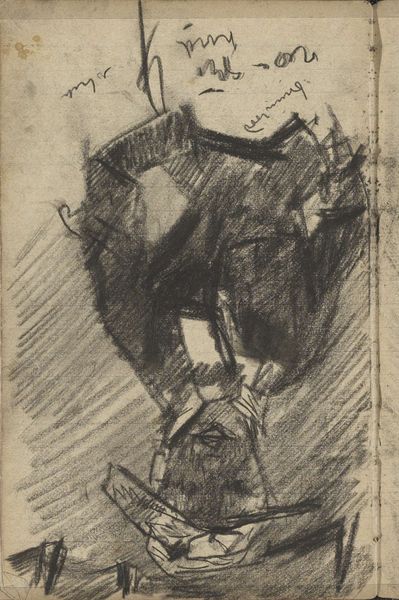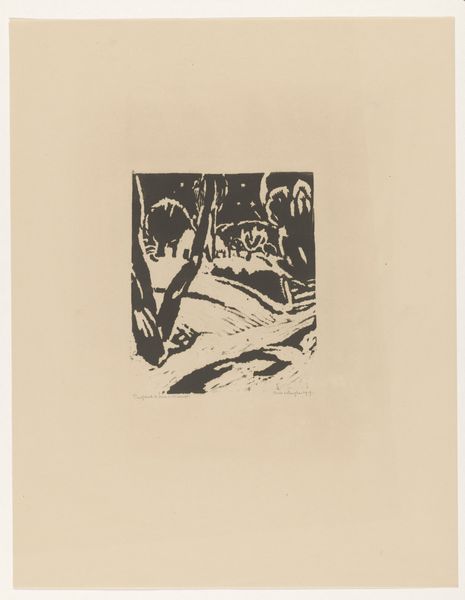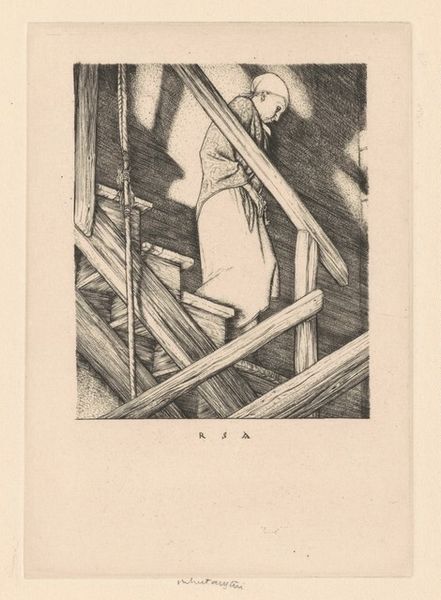
Mary Cassatt at the Louvre- The Paintings Gallery 1879 - 1880
0:00
0:00
aquatint, print, etching
#
portrait
#
aquatint
#
pencil drawn
# print
#
impressionism
#
etching
#
etching
#
cityscape
#
genre-painting
Dimensions: 12 x 4 15/16 in. (30.48 x 12.54 cm) (plate)16 1/4 x 8 5/16 in. (41.28 x 21.11 cm) (sheet)
Copyright: Public Domain
Editor: Here we have Edgar Degas's "Mary Cassatt at the Louvre: The Paintings Gallery," created around 1879-1880 using aquatint and etching. It's a striking image of a woman with a walking stick viewing paintings. I find it quite mysterious and somewhat subdued. What do you see in this piece, especially regarding its portrayal of women in the art world? Curator: This piece is fascinating when considered through a feminist lens. We see Cassatt, herself a prominent Impressionist, actively engaging with art, but through Degas's eyes. The image becomes a study in the male gaze depicting a woman artist within a male-dominated institution. What does it mean for a woman to be both subject and observer within that framework? Editor: I hadn't considered that tension. It's like she's claiming space, but still within the confines of societal expectations. Does the "cityscape" theme reinforce or challenge this reading? Curator: I'd say it reinforces it. The Louvre, a quintessential symbol of Western art and culture, is inherently part of that cityscape. Cassatt’s presence disrupts that narrative. How does the "genre-painting" tag influence your understanding? Editor: It adds a layer of intimacy. We're not just seeing a grand museum; we're witnessing a private moment of contemplation, albeit one captured and presented by a male artist. Perhaps it is Degas’s vision of a female painter in that era. Curator: Exactly! It pushes us to consider the socio-political context of the late 19th century and the challenges faced by female artists navigating patriarchal structures. Ultimately, what this etching invites us to do is confront how the gaze impacts representation. Editor: I’ll definitely be looking at Impressionism with a broader view now! Thanks for shedding light on those intersectional narratives.
Comments
minneapolisinstituteofart about 2 years ago
⋮
In 1865 Edgar Degas joined a group of artists, writers, critics, and collectors who met at Madame Desoye's famous shop, La Porte Chinoise, at 220 rue de Rivoli to discuss and admire Japanese art. The group included Edmond and Jules de Goncourt, Émile Zola, Charles Baudelaire, Edouard Manet, James Tissot, James McNeill Whistler, and Felix Bracquemond. Degas knew many other important collectors of Japanese art, who opened their doors to him. He became a collector himself and at the time of his death his studio held more than 100 ukiyo-e prints. Stylistically, Degas was most impressed by the subtle use of line, unusual organization of space, and unfamiliar foreshortening he found in Japanese art. Mary Cassatt at the Louvre is perhaps his most Japanese-inspired print. The narrow format and up-tilted background plane, the cropped column on the left, the unusual off-center arrangement of the subjects, and the bird's-eye perspective combine to make this an extremely daring composition.
Join the conversation
Join millions of artists and users on Artera today and experience the ultimate creative platform.
